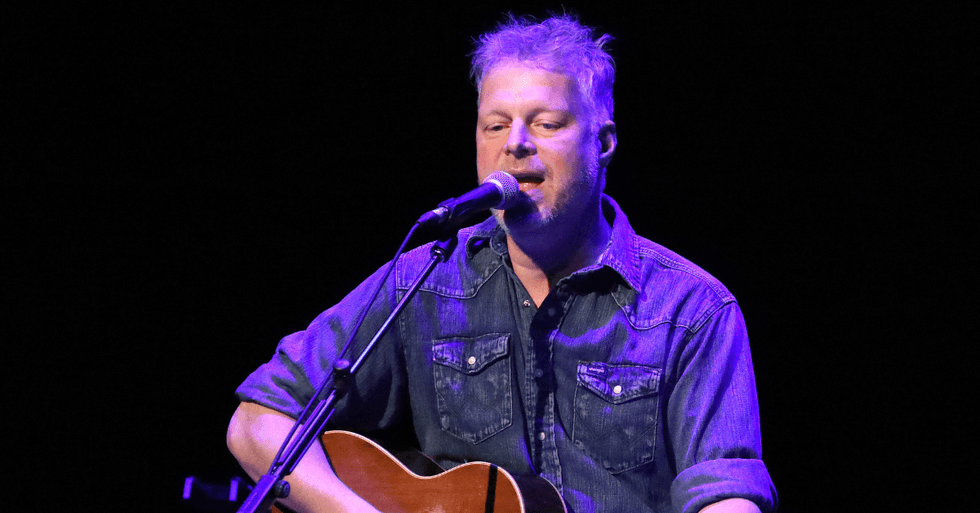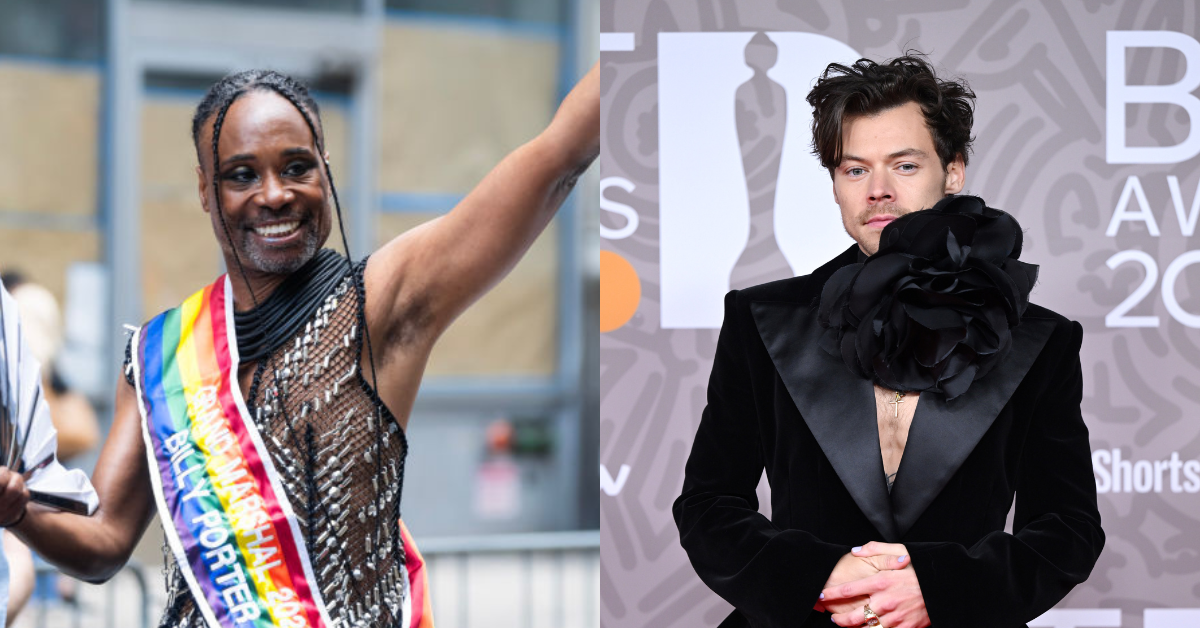Billy Porter revisited his disapproval of Vogue's historical decision to feature pop star Harry Styles in a dress as the first male solo featured on the cover of the publication's December 2020 issue.
Porter, who is an out gay man living with HIV and a gender nonconformist fashion trailblazer, made an assumption about Styles' sexual identity and accused him of queerbaiting.
Queerbaiting is the act of influencers and celebrities claiming to have had same-sex relations for internet clout with the LGBTQ+ community when they are actually heterosexual.
Porter claimed that the Grammy award-winning singer/songwriter, who frequently sports gender-fluid fashion, was chosen for the Vogue cover because he was "white and straight."
“It doesn’t feel good to me," said Porter in a recent interview with The Telegraph, addressing Styles.
He said:
"You’re using my community—or your people are using my community—to elevate you."
"You haven’t had to sacrifice anything."
Months before publication of the issue featuring Styles, Porter revealed that he was interviewed by Vogue Editor-In-Chief Anna Wintour and was asked how the magazine could evolve in a new direction in an era of experimental fashion.
He recalled:
"That b*tch said to me at the end, ‘How can we do better?’"
"And I was so taken off guard that I didn’t say what I should have said."
Porter later realized how he would have responded to Wintour's question, which was:
"Use your power as Vogue to uplift the voices of the leaders of this de-gendering of fashion movement."
"Six months later, Harry Styles is the first man on the cover."
When the Vogue issue featuring Styles dressed in a Gucci gown came out, many conservatives balked, including far-right media pundit Candace Owens.
She bashed Styles for what she interpreted as his feminization of masculinity and she pleaded with the public to "bring back manly men."
Styles responded to the general backlash and defended his fashion taste, saying:
"To not wear [something] because it's females' clothing, you shut out a whole world of great clothes. And I think what's exciting about right now is you can wear what you like."
"It doesn't have to be X or Y. Those lines are becoming more and more blurred."
Porter said he was disappointed by the Vogue cover because Styles had not worked enough to establish non-binary fashion to deserve the cover feature.
In his criticism, the Pose actor made assumptions about Style's sexuality. In an interview with The Sunday Times, Porter said:
"I created the conversation [about gender-fluid fashion] and yet Vogue still put Harry Styles, a straight white man, in a dress on their cover for the first time."
He claimed he wasn't "dragging" the singer and added:
"But he is the one you're going to try and use to represent this new conversation?"
"He doesn't care, he's just doing it because it's the thing to do."
While Styles has only been seen in public dating women, he has never confirmed his sexuality and he refuses to use labels.
When asked about his sexual identity in a 2019 interview with the Guardian, the "As It Was" singer responded:
“It’s not like I’m sitting on an answer, and protecting it, and holding it back. It’s not a case of, ‘I’m not telling you [because] I don’t want to tell you.’ It’s not, ‘Oh, this is mine and it’s not yours.’"
"It’s, ‘Who cares?’ Does that make sense? It’s just, ‘Who cares?’”
Now that Porter has revisited the conversation of Vogue choosing to feature a "white and straight" male on the cover nearly three years ago, his comments divided social media users.
Some stood by Porter.
While they didn't agree with accusations of Styles queerbaiting, Porter stans believed the prestigious publication should have featured an openly gay man on its cover.
Others, however, believed Porter had no right to assume Styles' sexuality, and they also thought he should move on from this topic.
During an appearance on The Late Show With Stephen Colbert last year, Porter apologized for condemning Styles for the 2020 Vogue shoot.
"The first thing I wanna say is, Harry Styles, I apologize to you for having your name in my mouth. It's not about you," he said.
"The conversation is not about you. The conversation is actually deeper than that."
"It's about the systems of oppression and erasure of people of color who contribute to the culture."
He admitted the topic was "a lot to unpack" but he was willing to revisit the conversation:
"Sans the dragging and cancel culture of the internet because I do not now, nor will I ever, adjudicate my life—or humanity—in soundbites on social media."
"So when you're ready to have the real conversation, call a b*tch," he said.
 COMICSANDS
COMICSANDS percolately
percolately georgetakei
georgetakei secondnexus
secondnexus george's picks
george's picks












